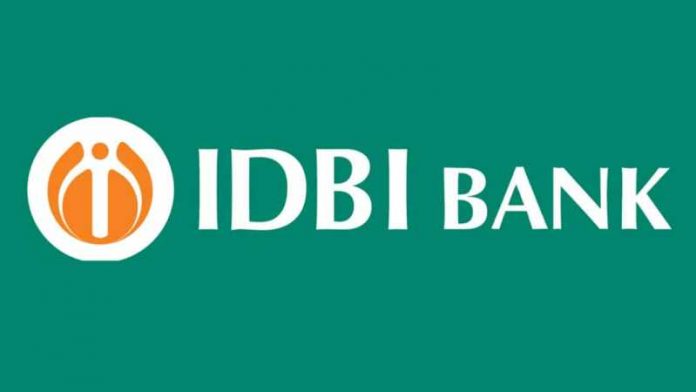This article is written by Shruti Kulshreshtha, from Symbiosis Law School, Hyderabad explaining the Industrial Development Bank (Transfer of Undertaking and Repeal) Act, 2003.
Table of Contents
Introduction
The Industrial Development Bank of India (hereinafter referred to as ‘IDBI’) was established as a subsidiary wholly owned by the Reserve Bank of India in the year 1964, to act as a principal financial institution for managing the activities of all institutions which deal with financing, promoting and development in India. In 2003, RBI formed a committee to formulate policies and recommendations for the diversification of the activities of IDBI. The Committee suggested that to coordinate the activities of development financing and banking, there is a need to bridge the gap between commercial banking and development banking. Hence, The Industrial Development Bank (Transfer of Undertaking and Repeal) Act, 2003 (hereinafter referred to as the ‘Act’) was enacted which made IDBI a commercial institution from a development finance institution. IDBI acquired the status of a limited company, thereby making it IDBI Ltd.
About the Act
Responding to the existing scenario of commercial prudence, RBI decided to convert IDBI into a bank. The Act got presidential assent on 30th December 2003 and came into force in July 2004. The primary aim of this Act is to convert Industrial Development Bank of India into a government company registered under Companies Act, 1956 which was done on 27th September 2004 and to repeal the Industrial Development Bank of India Act, 1964. Upon the enforcement of the said Act, the Industrial Development Bank of India came to be vested in IDBI Ltd. Subsequently, the undertaking of IDBI was transferred to IDBI Ltd. on 1st October 2004. Till now, IDBI was functioning as both a bank and a financial institution. RBI converted IDBI to a ‘scheduled bank’ by amending the RBI Act, 1934 for better compliance.
The Act consists of 3 chapters and 15 sections along with a schedule which amends the RBI Act, 1934, Banking Regulation Act, 1949, Industrial Disputes Act, 1947 and the Small Industries Development Bank of India Act, 1989 for making these enactments in conformity with the provisions of the Repeal Act.
Salient features of the Act
The following are the salient features of the Act:
- The Act transfers and vests the undertaking of IDBI to a company formed under the Companies Act, 1956 to carry out banking business which is IDBI Ltd.
- The Act repeals the Industrial Development Banking of India Act, 1964.
- For this Act, ‘Development Bank’ means IDBI, whereas ‘Company’ means IDBI Ltd. which is the company formed under the Companies Act, 1956.
- As per the Act, IDBI shall function as a banking company and follow the provisions of the Banking Regulation Act, 1949.
- The documentations such as bonds, contracts, deeds shall terminate against IDBI after the appointed day, as specified by the Act, which will render them inapplicable against IDBI.
- All such documentation including litigation matters shall be continued by the Company formed under the Companies Act, 1956.
- The officers and employees of IDBI will retain the position as an officer or employee of the company after the appointed day and will have the same rights and privileges, employment for the same tenure and remuneration, have the same facilities and perform the same tasks and duties and be responsible in a similar manner as he or she was before the appointed day or before the undertaking by the company. This will carry on for six months after the appointed day if in case the officer or employee does not wish to remain employed after the undertaking has vested in the company.
- All tax exemptions and the monetary and fiscal policies which were applicable on IDBI before the appointed day will continue to apply to the Company.
Important provisions of the Act
Section 3 – Undertaking of development bank to vest in company
Section 3 states that the undertaking of the Development Bank shall transfer and vest into the company on the date as prescribed by the Central Government. Sub-section 2 provides that the Company will be a deemed banking company under Section 5(c) of the Banking Regulation Act, 1949 and it shall carry out banking activities as per the provisions of this Act.
However, this Section provides 2 exemptions to the company:
- The Company will not be required to obtain a licence under Section 22 of the Banking Regulation Act. This licence is generally mandatory for all banking companies.
- The Company is not required to maintain the prescribed percentage of assets after the appointed day.
All other provisions of the Banking Regulations Act which are not conflicting with the provisions of the present Act shall apply to the company. This Section empowers the Central Government to direct by a notification that any of the provisions of the Act will not apply to the company or if they will apply to the company, but after some modifications or exceptions. This direction can be given by the Central Government only after consultation with the Reserve Bank of India. Moreover, a specific procedure is to be followed for issuing such notification. A copy of the proposed notification is laid before both the Houses of Parliament for a total of 30 days with any number of sessions. If the Houses of Parliament does not approve the proposed notification before the expiry of 30 days or if they suggest modifications or changes, then the notification shall not be issued or be issued after incorporating the modifications.
Section 4 – General effect of transfer and vesting of undertaking
The Central Government and all other shareholders of IDBI before the appointed day will be deemed to be shareholders of the company for the shares held by them in the development bank. The transfer shall include all business, assets, rights, powers, authorities and privileges and all properties, movable and immovable, real and personal, corporeal and incorporeal, in possession or reservation, present or contingent of whatever nature and wheresoever situate including lands, buildings, vehicles, cash balances, deposits, foreign currencies, disclosed and undisclosed reserves, reserve fund, special reserve fund, benevolent reserve fund, any other fund, stocks, investments, shares, bonds, debentures, security, management of any industrial concern, loans, advances and guarantees given to any person or industrial concern, tenancies, leases and book debts and all other rights and interests arising out of such property which was held by the development bank before the appointed day. All the above mentioned shall be deemed to be transferred to the company.
Also, all the bonds, contracts, guarantees and other instruments that were held by the development bank before the appointed day shall cease to have enforceability against the development bank and shall be applied against or in favour of the Company. Sub-section 4 of Section 4 states that any proceedings pending against the development bank before the appointed day will be continued and enforceable against the Company.
Section 5 – Provisions concerning officers and other employees of development bank
This section deals with the transfer of officers and employees of the development bank to the Company. All officers and employees of the Development bank who were under employment immediately before the appointed day shall be transferred to the Company. The tenure, remuneration, responsibilities, terms and conditions, rights, privileges and other benefits will remain the same as they were under the employment of the development bank. However, this whole provision does not apply to the director of the Board, Chairman, Managing Director and any whole-time director. They also cannot claim any compensation for the loss of office or early termination of any contract neither against the company nor the development bank.
An employee has the option of not opting for the above scheme which will mean that such employee has resigned. No employee who undergoes this transfer is entitled to any compensation or claim from the company. If an employee has retired from the development bank and was entitled for any compensation, benefits or privileges, then such an employee shall receive the same compensation, benefits and privileges from the company. Also, the trust of provident fund or gratuity fund of the development bank shall continue to function in the name of the Company.
Miscellaneous provisions
Any concession and guarantee in favour of the development bank shall be deemed to be granted to the company. This includes fiscal concessions, licences, benefits, privileges, exemptions, guarantees concerning loans, lease, finance and any other assistance. This is mentioned under Section 6 and Section 8 of the Act respectively.
Section 7 of the Act deals with the tax exemptions or any tax benefits that would continue to affect the company. It states that any exemption of tax or any benefit by way of set-off or carry forward of any unabsorbed depreciation or investment allowance or other allowance or loss that still subsists with the development bank before the appointed day will be continued with the company after the appointed day in the same manner and same terms and conditions. If the development bank was entitled to a tax deduction at source, it shall be continued by the company.
The company will not be required to take any approval of securities under the Indian Trusts Act, 1882 and Insurance Act, 1938 since the shares, bonds and securities shall be deemed to be approved for this purpose.
Section 13 of the Act stated that in every Act, rules, regulations and notification, the following changes shall be done:
- ‘Industrial Development Bank of India’ shall be substituted with ‘Industrial Development Bank of India Limited referred to in clause (b) of section 2 of the Industrial Development Bank (Transfer of Undertaking and Repeal) Act, 2003’.
- ‘Development Bank’ will be substituted with ‘Industrial Development Bank of India Limited referred to in clause (b) of section 2 of the Industrial Development Bank (Transfer of Undertaking and Repeal) Act, 2003’.
Section 14 empowers the Central Government to remove any difficulties that arise in giving effect to the provisions of this Act. This can be done by the Central Government by way of an order to be published in the Official Gazette of India. Every such order is required to be laid before both the Houses of the Parliament for their approval. However, the proviso to sub-section (1) states that after the expiry of three years of the enforcement of this Act, the Central Government does not have the power to make any such order.
Section 15 of the Act states that on the appointed day, the Industrial Development Bank of India Act, 1964 shall stand repealed. Nonetheless, Section 30A of the IDBI Act shall continue to affect the arrangement entered by IDI with an industrial concern and the company shall effectuate notwithstanding the existence of this Act.
The Schedule
Section 12 of the Act empowers the government to carry out certain amendments to make other enactments in compliance with the present Act. The following are the amendments to the other Acts:
- The Reserve Bank of India Act, 1934: The definition and the words ‘development bank’ were omitted from the Reserve Bank of India Act. Specifically, these are Section 2(b)(vii), Section 17, Section 42, Section 45 and Section 46C of the RBI Act, 1934.
- The Banking Regulation Act, 1949: The words ‘development bank’ were omitted from the Banking Regulation Act from wherever they appear in the Act. Specifically, these are Section 2, Section 34 and Section 36 of the Act.
- The Industrial Disputes Act, 1947: The words ‘the industrial development bank of India’ were omitted from Section 2 clause (bb).
- The Small Industries Development Bank of India Act, 1989: Under this Act, a new definition was added. The Definition of ‘industrial concern in the small scale sector’ was inserted as Section 2 clause (h) of the Act.
Conclusion
The Industrial Development Bank (Transfer of Undertaking and Repeal) Act of 2003 rightly serves its functions and the intention with which it was enacted. The Act has laid down provisions for the conversion of IDBI into IDBI Ltd. which has had numerous repercussions in the functioning of the company accordingly.
References
LawSikho has created a telegram group for exchanging legal knowledge, referrals and various opportunities. You can click on this link and join:
 Serato DJ Crack 2025Serato DJ PRO Crack
Serato DJ Crack 2025Serato DJ PRO Crack









 Allow notifications
Allow notifications


